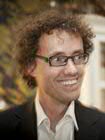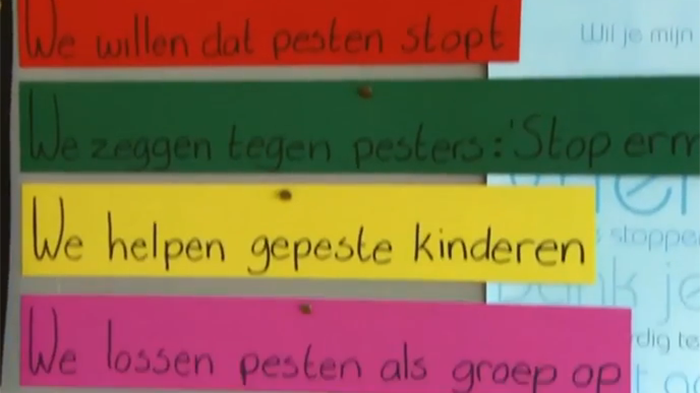René Veenstra nominated for the Huibregtsen Prize 2015
Prof. René Veenstra has been nominated for the Huibregtsen Prize 2015 for his research project ‘Pesten als groepsproces’ (Bullying as a group process). The jury chose seven research projects from the 24 submissions. On 5 October, the research leader of the winning project will be awarded the prize – € 25,000 – by Minister of Education, Culture and Sciences Jet Bussemaker in the Ridderzaal in The Hague.
The Huibregtsen Prize was set up in 2005 by the board of the Stichting De Avond van Wetenschap & Maatschappij (Night of Science and Society Foundation). The prize is for a recent research project that breaks new scientific ground and shows convincing prospects of social application. Every year, all Dutch universities and public research institutes are invited to nominate a research project from the past calendar year for the Huibregtsen Prize. The prize is awarded to the research leader of the project.
The prize is awarded during the Night of Science & Society in the Ridderzaal in The Hague and comprises a sculpture, De Denker (The Thinker) by Wil van der Laan, and the sum of € 25,000, earmarked for research activities.
Please go to the website of the organizers, http://www.avondwenm.nl/, for further information about the Night of Science & Society and the Huibregtsen Prize.

René Veenstra
René Veenstra is Professor of Sociology at the University of Groningen and director of the interuniversity research school ICS. He is a world leader in research on dynamics in the social networks of adolescents. This year he was awarded a VICI grant of € 1.5 million by NWO.

The research: Bullying as a group process
Every day, over a hundred thousand children in the Netherlands are bullied at school. The anti-bullying programme KiVa, introduced to the Netherlands by Veenstra, is one way to tackle bullying. KiVa is Finnish for ‘fun’ and an abbreviation of the Finnish for ‘fun school without bullying’. In research involving over 200 classes from 66 schools, Veenstra and his group have demonstrated convincingly that bullying is significantly reduced at KiVa schools.
Dominant pupils are the most successful at gaining a good place in the school social hierarchy. They often achieve this by bullying others. Veenstra’s research shows that bullying is not an individual problem but a group process whereby the bully takes the initiative to bully others, assistants often join in the bullying, and reinforcers egg on the bully. All the pupils play a role in bullying. Tackling bullying only works if the entire group feels responsible for each other and if the behaviour of all group members changes, with an important role in this for teachers.
Using longitudinal social network analysis – an innovation with international appeal – Veenstra has been able to understand the developments in relationships and behaviour and provide teachers with more insight into the group process. He has built up a unique partnership of researchers, statisticians, trainers and data collectors with whom he continues to work on tailored solutions, better dovetailing of the various anti-bullying programmes and additional interventions. Quite rightly, there is significant interest from the education world, politics and the media.
| Last modified: | 07 July 2023 6.57 p.m. |
More news
-
24 March 2025
UG 28th in World's Most International Universities 2025 rankings
The University of Groningen has been ranked 28th in the World's Most International Universities 2025 by Times Higher Education. With this, the UG leaves behind institutions such as MIT and Harvard. The 28th place marks an increase of five places: in...
-
17 March 2025
Liekuut | The high price of conflicts
According to Carsten de Dreu, Professor of Foundations of Cooperation and Social Organization at the University of Groningen, a lot can be learned from conflicts.
-
10 March 2025
Science for Society | Memory Lab for higher marks
Learning facts at school is something hardly anyone likes. The day before a test, pupils cram as many words or names as possible into their heads, only to hopefully remember them the next morning and then forget them again after the test.
